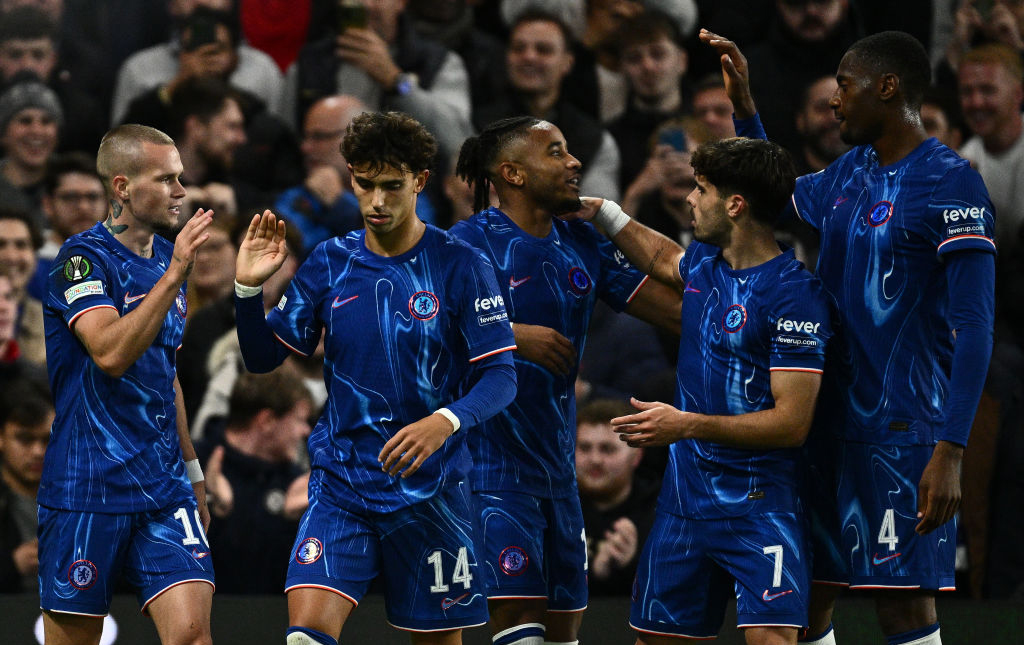Chelsea star Mykhailo Mudryk facing longest ban in Premier League history
Chelsea could lose Mykhailo Mudryk for a lengthy period, after he returned a positive drugs test

Chelsea forward Mykhailo Mudryk is at risk of being issued the longest ban in Premier League history, after failing a recent drugs test and being provisionally suspended by the FA.
Joey Barton currently holds the record for the longest ban in Premier League history, with the FA suspending the former midfielder in April 2017 for 18 months after finding him guilty for placing best on 1,260 matches between March 2006 and May 2013. He later had the ban reduced to 13 months after appealing, though, that still saw him set the record.
When it comes to a drugs ban, Abel Xavier is the holder of that record, receiving an 18-month suspension while a Middlesbrough player in November 2005. UEFA found a positive test for an anabolic steroid following a UEFA Cup match, with the Court of Arbitration for Sport cutting his ban down to a year.
Mykhailo Mudryk facing four-year ban - the longest in Premier League history

Mudryk, though, could be issued a punishment four times as harsh as Xavier's, with the maximum punishment a four-year ban from football.
The Ukrainian insists he has "never knowingly used any banned substances", despite the FA discovering an adverse finding in a routine urine test. Due to that adverse finding, Mudryk has been missed for the last four Chelsea games, as per FA rules dictating that a player is informed of a positive test and provisionally suspended before a decision is taken on a formal charge.

That formal charge relies heavily on the result of the 'B' sample. When players are tested, two samples are collected in separate containers - the 'A' sample is used to conduct the initial test, with the 'B' sample then required to verify the accuracy of results if a positive 'A' sample is returned.
Should that 'B' sample also come back positive, then Mudryk could face a maximum four-year ban from the FA. While the 'B' sample is being tested, Mudryk has the opportunity to provide an explanation for the initial positive result.
Get FourFourTwo Newsletter
The best features, fun and footballing quizzes, straight to your inbox every week.
If Mudryk does receive the maximum punishment, he'd return to football aged 27 - 28 if the ban is handed out after January 5 - in the 2028/29 season. But while his current contract with Chelsea, which runs until the summer of 2031, will still have a couple of years remaining on it, there's no guarantee the hierarchy at Stamford Bridge would look to keep him.
Indeed, Juventus and Paul Pogba mutually agreed the termination of his contract earlier this season once the length of his drug ban became clear, which would likely happen between Chelsea and Mudryk.
Though Mudryk faces a potential four years out of football, it still wouldn't be the lengthiest punishment issued by the FA in its history. That's because former Torquay United goalkeeper Olafur Gottskalksson disappeared after being selected to give a sample in 2005, knowing his cocaine addiction would show up in the results.
A few months later the FA announced that Gottskalksson, who had fled to Amsterdam and didn't return, had been banned from football indefinitely, with that lifetime ban trumping the 30 years Enoch got for match fixing in 1915.

Ryan is a staff writer for FourFourTwo, joining the team full-time in October 2022. He first joined Future in December 2020, working across FourFourTwo, Golf Monthly, Rugby World and Advnture's websites, before eventually earning himself a position with FourFourTwo permanently. After graduating from Cardiff University with a degree in Journalism and Communications, Ryan earned a NCTJ qualification to further develop as a writer while a Trainee News Writer at Future.
